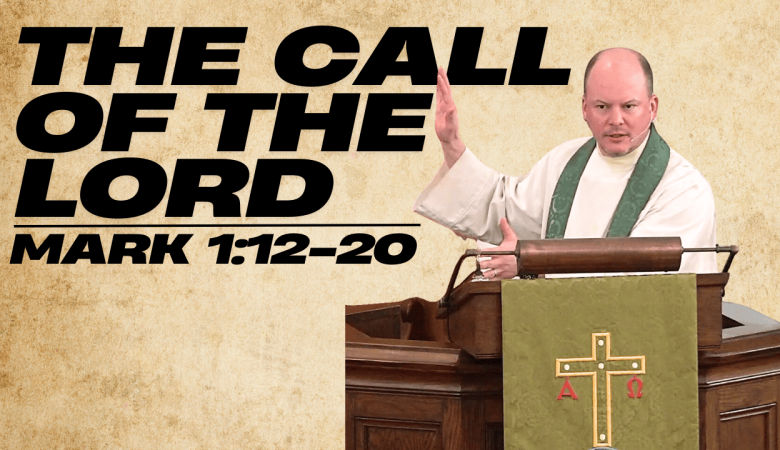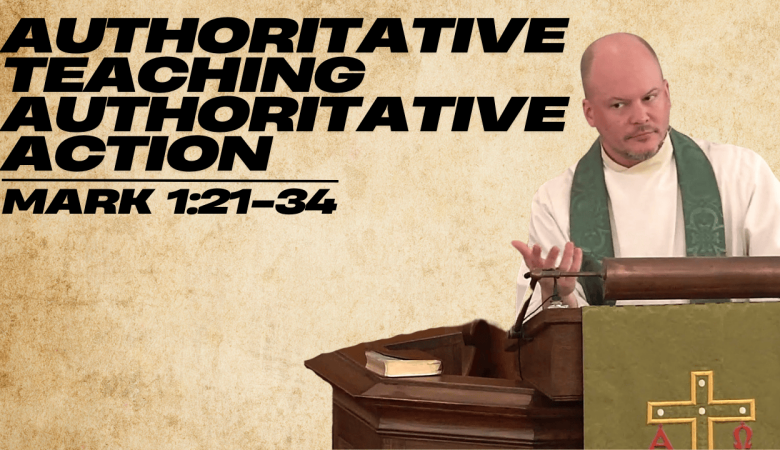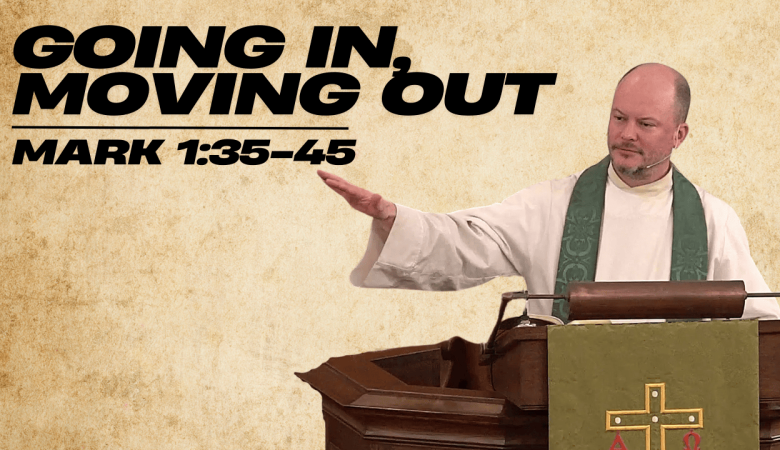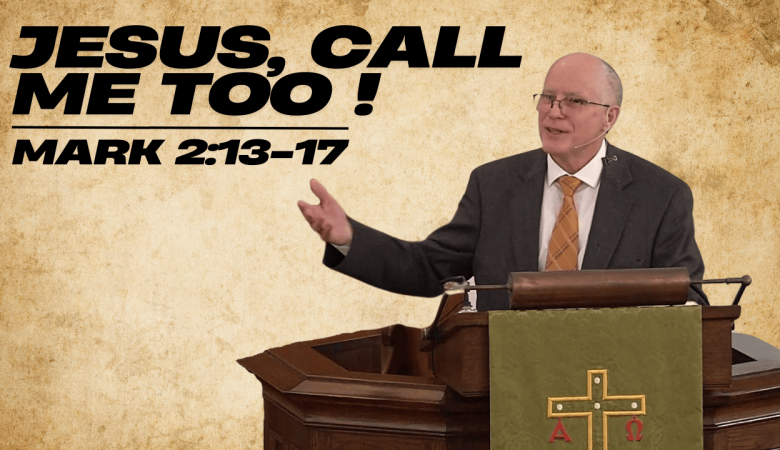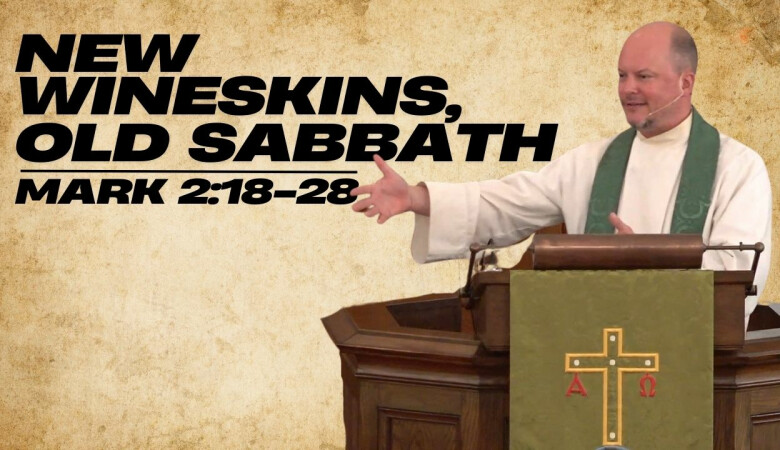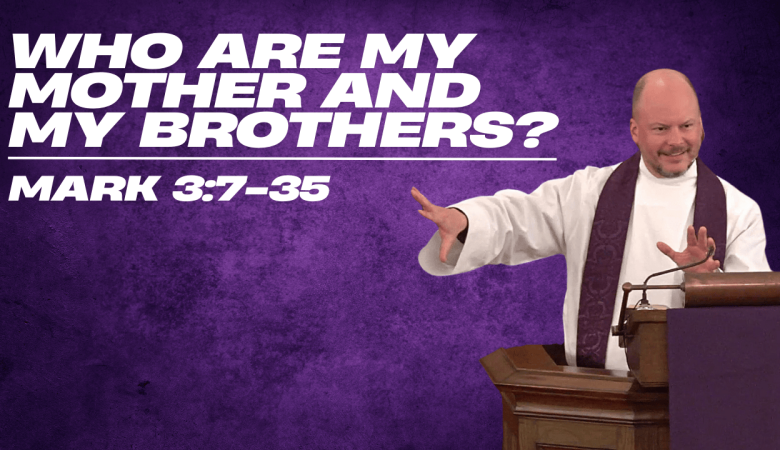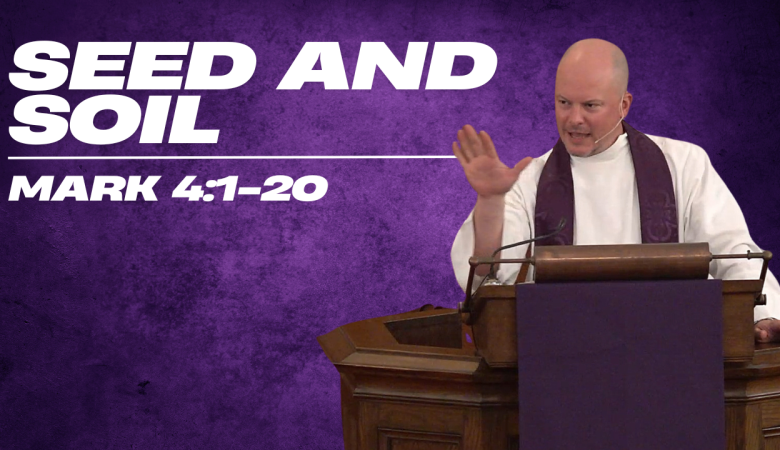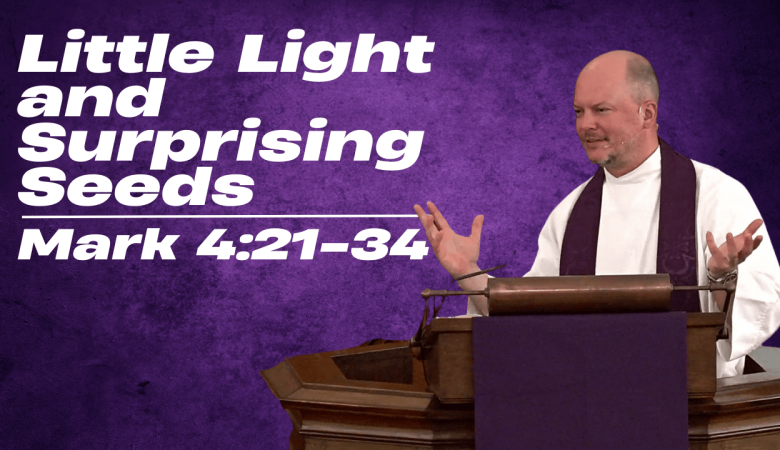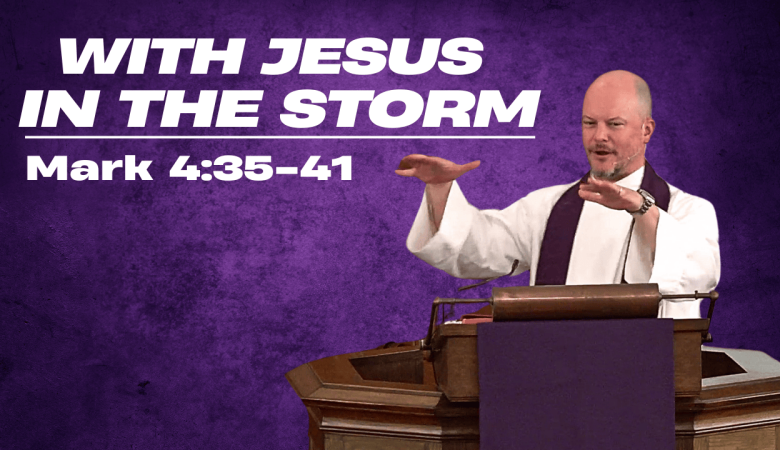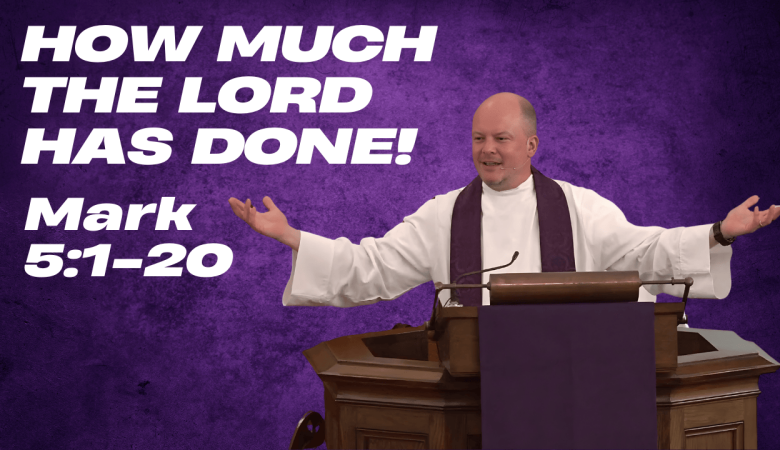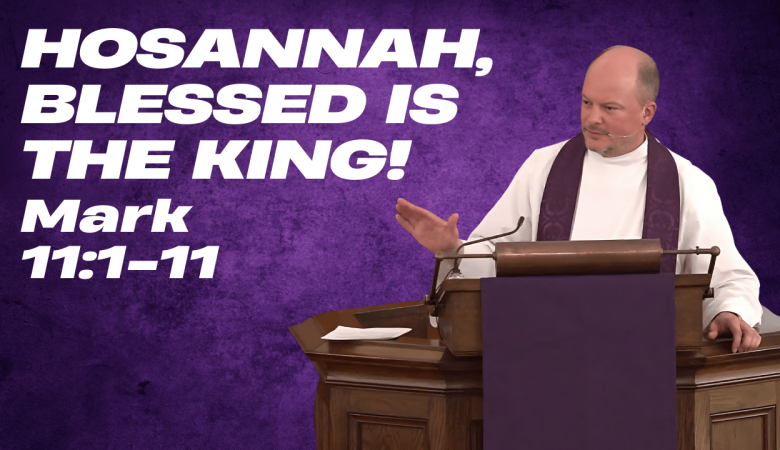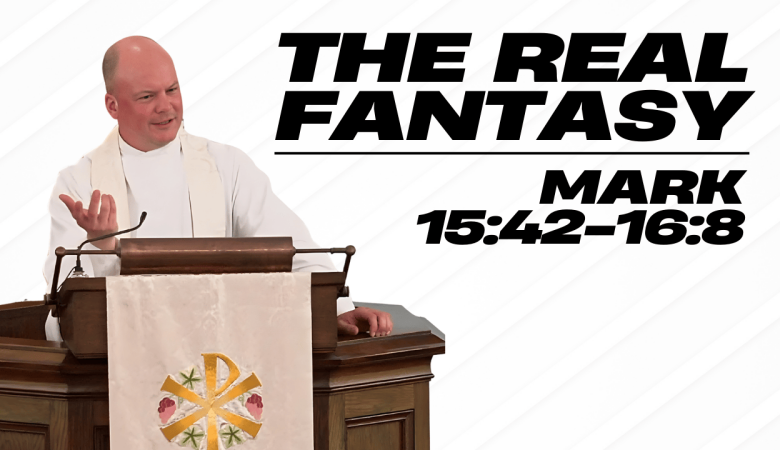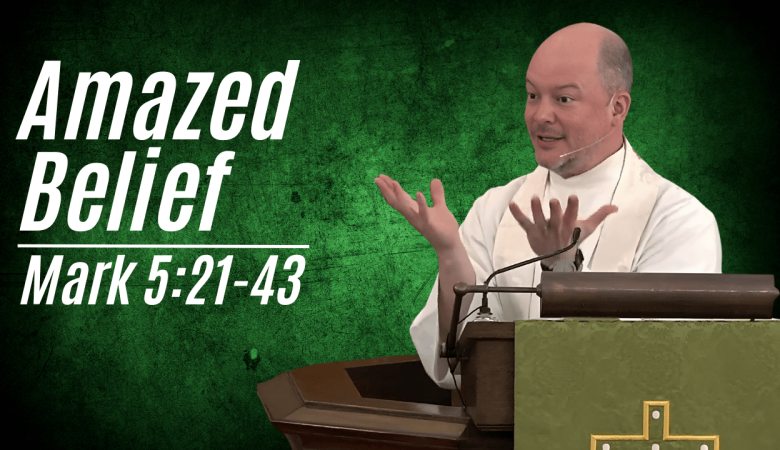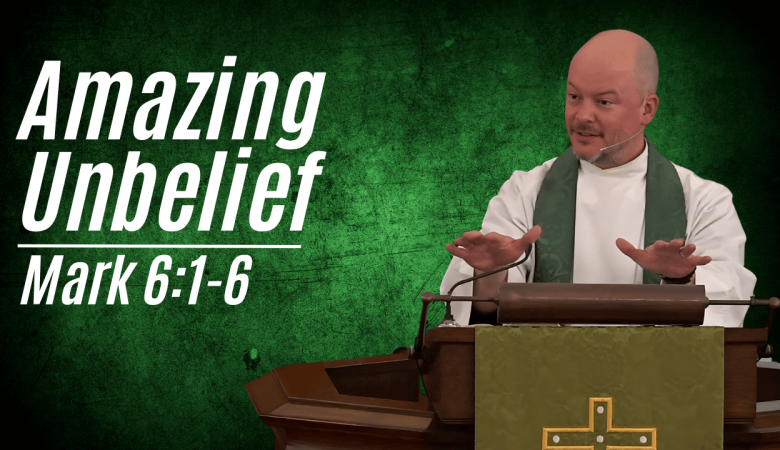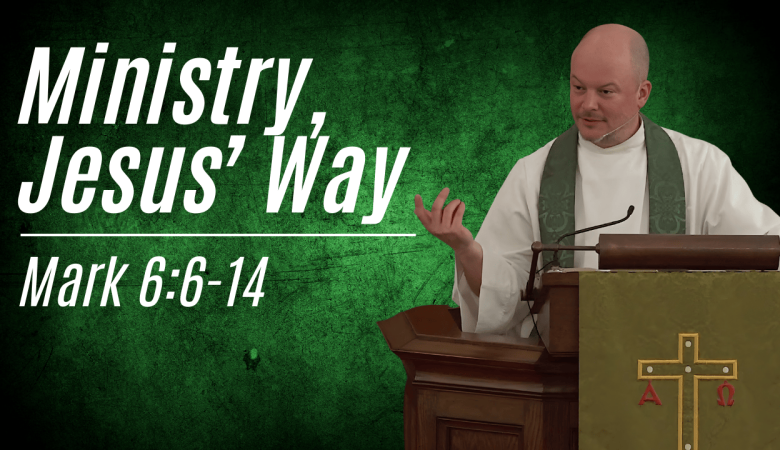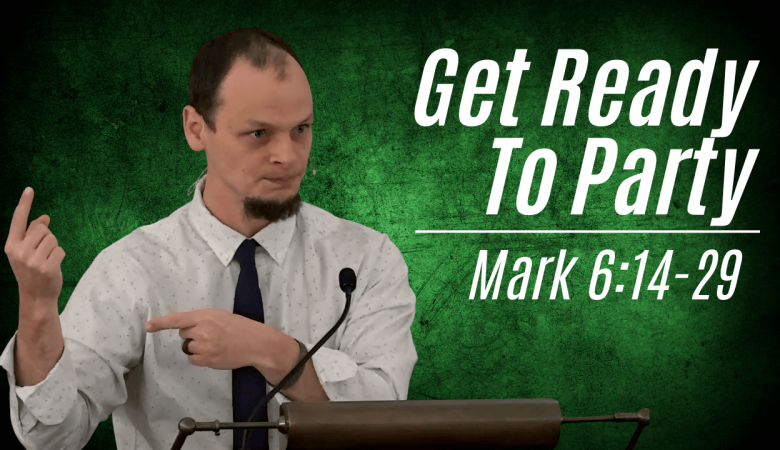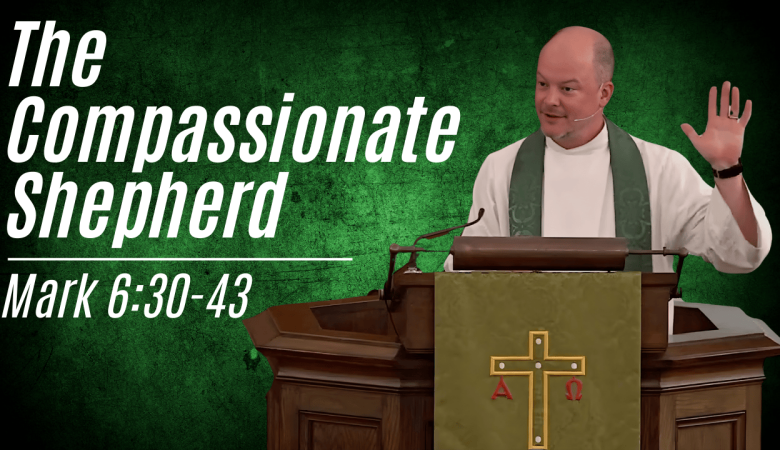Series: The Gospel of Mark
Walking in Forgiveness
February 09, 2025 | Peter Rowan
Summary
One of the great stories of healing is the paralyzed man who is brought to Jesus by his friends through the roof. But what Jesus to that man, he says to all of us. "Your sins are forgiven, take up your bed and walk." This isn't just about a paralyzed man, though of course it is about that, this is about the heart of the good news for all of us. Guilt paralyzes, forgiveness makes us walk and makes us run. But forgiveness is so unbelievably hard. Which is why truly who can forgive sins but God alone.
Transcript
This is one of the stories from Jesus’ life that has always stayed in my mind with very vivid images. Maybe it has for you too if you’ve just heard it for the first time or if you remember it being read to you as a young child by your parents. I picture the small punk venue in Tacoma, Washington where I went and saw MXPX play when I was about 14 (We ain't got no place to go, So let's go to the punk rock show, Darling take me by the hand We're gonna see a punk rawk band). I probably had my skateboard under my arm just because I thought it would be cool. That little venue was absolutely packed. Maybe you’ve been at parties like that. Shoulder to shoulder. Just trying to get from the door to the stage or the door to the drinks at the back of the house feels utterly impossible. Mark tends to have the crowds described like this. At best curious, but often passive and sometimes obstructions to the faithful and to what Jesus is saying and doing. They are not symbols of faith or even often symbols of how wonderful the great master-teacher that Jesus was. They are often in it for themselves and they are often impediments to others. So the crowd has gather and they have gathered thick. And they have come to Jesus to be hear him teach. We’ve heard already in Mark how he taught on his own authority and people were amazing by this. And he healed in such a way that people keep silents about what had happened to them. So the crowds gathered.
But they didn’t just gather anywhere, this is Capernaum. Matthew tells us that they had got into a boat crossed over (the sea of Galilee) and had come to Jesus’ own city. And, though some people debate what we have translated here in verse 1 as “it was reported that he was at home” as either meaning that he was in his home town or actually that this took place at his home, it seems to me that at the very least we could take these texts together to mean that he came home to his home town and that he was very likely in his own home and people were coming to him. .
So, the picture that we are getting is of a crowd that is so thick that others cannot make their way into the home and that the home is the very home of Jesus.
When I was three years old we moved from Tacoma, Washington to Vashon Washington and there we went to a little community church that is in the Assemblies of God denomination. The man who helped lead quite a bit of the music while playing that banjo was a man named Frank Parietti. He and my dad became good friends and they were both building their own homes and the time. I remember going over to his house as young boy and running around in his woods. Well, some of you know the name Frank Parietti because he became a NYT best-selling author for his books that were mostly about the supernatural and about spiritual warfare and whatnot. Anyway, Frank because pretty famous and because of that people started to find out where he lived and would just show up at his house and knock on his door and all kinds of things. And it was actually because of this that he and his wife ended up moving to Northern Idaho. My parents still spend time with them and go watch Frank play his banjo with his folk band in bars around Eastern Washington and Northern Idaho.
Anyway, you get this picture. Here is Jesus, heading home from the busy life of ministry. And the people just crowd into his house.
Now, keep in mind, these houses were often very small. Often they were just one room, but maybe you had two rooms that were about 15’x15’ or so. Some of the houses had a second story, but many did not. For the most part the roof functioned like our backyard and our decks, places maybe to rest and hang out, sometime they were used as workspaces. They were often very sturdy houses and very strong and sturdy roofs. So into this 15’x15’ house or so people were so crowded that the crowd was spilling out into the street. Mark tells us “there was no more room, not even at the door.”
And so these buys bring their friend who was a paralytic.. Rather than pushing their way through the crowd, rather than waiting until things had died down a bit, rather than yelling out “our friend needs Jesus! Please, please make way. I mean, if this really is one of those common small houses, which it likely was, even if the crowd is thick, couldn’t four men get the attention of Jesus, couldn’t four men disrupt this crowd enough that they could make their way into the house? It’s got to be possible. Me and my other 14 year old skating buddy might have a hard time making it through the mosh pit up to the stage, but four men certainly could have done something other than what they did.
What they did was carry their friend up on to the roof. And what they did was first peel back the thick layer of mud or plaster than was the sealing layer of the roof. Maybe they had actually done is ran back to their own houses for some tools to chip away and dig at this hardened layer. Then they tore at the thatch that was made of grasses and reeds and maybe palm branches. They got to the sticks, which they broke up and finally they came to the beams. The beams would have been made of sycamore or of cypress and it’s certainly possible that the beams were far enough apart that they wouldn’t have removed one of these to get their friend down.
And I want you to think of this crown down below them and of the Lord Jesus sitting their in the middle of the crown teaching. And at the beginning of this roof excavation they are just seeing a greater number of particles in the air, but then soon pieces start falling on their heads and they start to wonder was is happening up there. And then light breaks through and apparently the crowd doesn’t disperse and Jesus doesn’t stop teaching. And then the whole gets a little bigger and a little bigger.
And then it happens. A man begins to descend. Right there in the middle of this crowd with all of this junk from the roof in their hair and on the floor. The man comes down and it immediately becomes apparent that this man can’t speak. But Jesus speaks and what he says is “Son, your sins are forgiven.”
“Son, your sins are forgiven.”
And if you were there, you first thought, “Well, what a kind man. These guys just tore apart part of his roof and he is willing to not hold it against them but to forgive them.” But then, just like the scribes sitting their (and Matthew and Luke tell us there were Pharisees there - the people who’s job it was to know God and know his law and his ways), just like those guys you start to think, “There was something in the way he said that and how he said it and actually what he said ‘your sins’ that is so much more than just the particularities of this day and this roof and the dust on my head."
So Mark tells us that the Scribes sitting there questioned in their hearts “Why does this man speak like that?” And it’s understandable that maybe most people there were thinking the same thing. “There was something in his tone. There was something in is eyes and his rhythm and all of it that said so much more. Why is he speaking like that?” “He’s blaspheming! Who can forgive sins but God alone.”
And Jesus perceived these thoughts of their hearts and he speaks to them.
“Why do you question these things in your hearts? 9 Which is easier, to say to the paralytic, ‘Your sins are forgiven,’ or to say, ‘Rise, take up your bed and walk’? 10 But that you may know that the Son of Man has authority on earth to forgive sins”—he said to the paralytic— 11 “I say to you, rise, pick up your bed, and go home.”
And this man rose and he picked up his bed and he left.
All of that work up on the roof and the man is there in the room for maybe just a minute.
And yet, in that minute Jesus tells us the whole of the good news. “Your sins are forgiven, walk!”
These men had done something that everyone could have taken as an offense. And maybe part of what Jesus is saying is “You are forgiven for breaking apart my roof like that.” Maybe that is part of it. And you can picture how strange it must have been. How everyone there was wondering what he would do with folk that tear apart roofs.
But Jesus speaks to so much more than tearing apart roof. What about the anger that lashes out in dealing words to your children that tears apart soft hearts and begins to calluses that harden. What about the desires of good things, like what happened in the garden long ago, the desire for good things in the wrong places and the wrong time that tears apart how things were meant to be received as gifts. The greed that builds and tears apart communities. How about the blame shifting that tears apart relationships. You have often heard me talk about how sin in the Bible creates distance. It tears relationships apart. It always does. Even the small offenses do. Even the offenses that we know can be practically fixed. Sure, you bumped my car and left that scratch. Sure, it can be painted over. But if there is not confession and forgiveness, the relationship tears a little and a little more distance is created.
Friends, if you want to cripple your marriage, don’t forgive and don’t receive forgiveness. If you want to cripple the life you have with others, harden your hearts, don’t forgive and don’t receive forgiveness. If you want to stifle the creativity of your parenting, don’t receive the forgiveness and grace of God, but live in the shame of guilt.
In the book The Four Loves, Lewis writes:
Love anything and your heart will be wrung and possibly broken. If you want to make sure of keeping it intact you must give it to no one, not even an animal. Wrap it carefully round with hobbies and little luxuries; avoid all entanglements. Lock it up safe in the casket or coffin of your selfishness. But in that casket, safe, dark, motionless, airless, it will change. It will not be broken; it will become unbreakable, impenetrable, irredeemable. To love is to be vulnerable.
We are paralyzed by guilt, we walk, we can even run, in forgiveness.
Now, bothers and sisters, don’t think for a moment that we can extrapolate from this text that this man was paralyzed because of his sin. Maybe he was. Maybe he had been a thief and he had grabbed all of the boxes off of someone’s stoop early one morning and the ice that had built up on the stoop steps had hardened and this man had fallen so hard that he became paralyzed. Maybe some sin did contribute to his inability to walk. But don’t make of this text and this story that this man’s paralyzed state must have been caused by sin. Don’t think that tragedy befalls us always because of sin. Jesus tells us not to do that. Luke tells us in chapter 13 that some people came to Jesus and told him about the Galilean’s who had a horrible death from Pilate. And Jesus tells them also about a tower in Siloam that fell and keels 18 people. And that we shouldn’t underhand these events just as God’s punishment, but as a warning to repent. Bothers and sisters, don’t take stories like this and don’t the tragedies that fall on other or that fall of you as consequences of sin. They may be related, but these things are beyond us.
But do take this: Guilt always paralyzes. Sin always paralyzes us. Not forgiving and no receiving forgiveness always paralyzes us.
But look at the power of God here!
These scribes, these people who had gathered to hear Jesus, knew that God could forgive. They knew that the power of true forgiveness is a supernatural power. They knew that really true full forgiveness is only, ever and always a gift from God. Why? Because forgiveness, while it is very possibly the most powerful thing in the world is simply so hard because it costs so much. Because to really forgive, to truly forgive, you have to look the wrong in the face, you have to actually feel the hurt, and you have to be willing hold it all and not hold it against the one who has done the wrong.
This is what God does in Christ. If you want the gospel of Jesus in a nutshell, this is it. Jesus comes and on the cross bears the full weight of sin. He bears the full weight of the wrong that has been done. Not part of it. All of it. And he doesn’t hold any of it against us. Not one bit. He isn’t waiting until you come home to tell you “You dirty rotten scoundrel, I know what you did.” That kind of forgiveness does invite us to walk and to run. Know, that invites fear and fear paralyzes. But perfect loves always drives out fear and forgiveness always brings freedom.
So, here it is, here’s the good news. And it is an invitation to you. It’s an invitation to you to come to Jesus. Do everything you can to come to Jesus. Do everything you can to bring those you love to Jesus. He sees. He knows. He understands that what you really need deep down is forgiveness. And he offers it to you gladly and freely. “Take up your bed and walk.” Amen.
Series Information
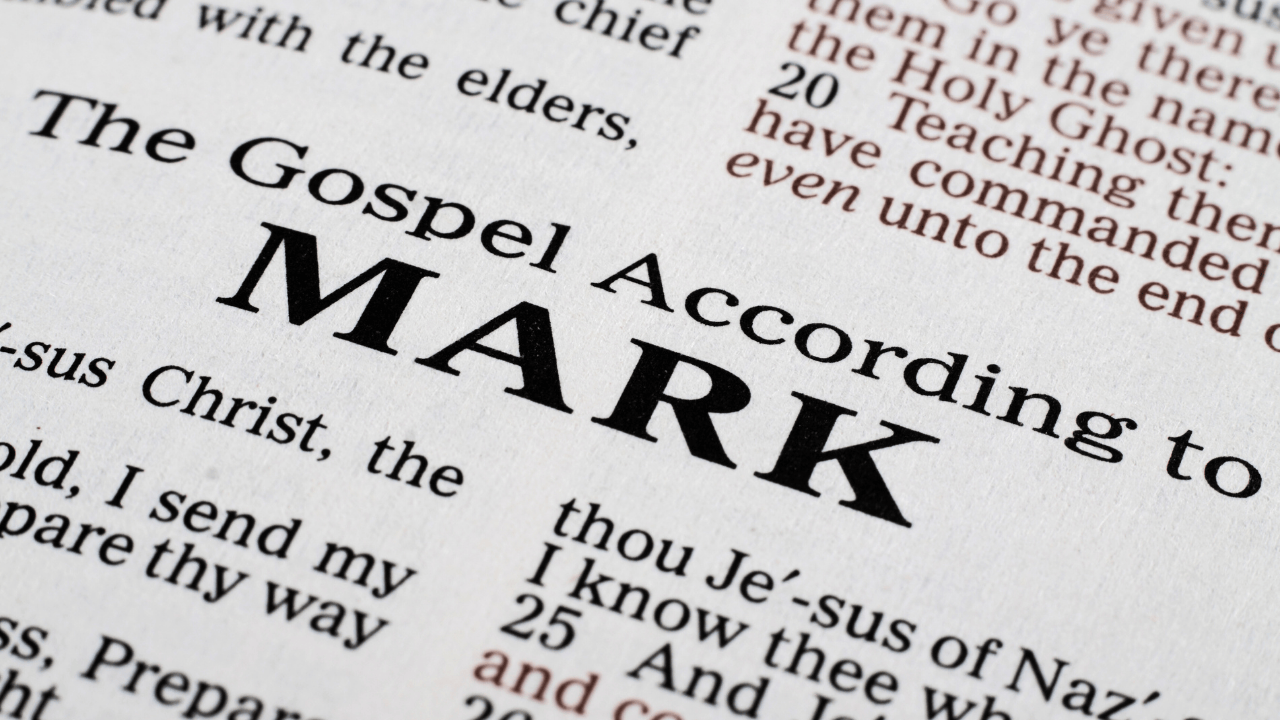
Mark's gospel is fast. He jumps right into what is central to the good news, the gospel, of Jesus. John the Baptist comes, and he is great, but his whole message is one of preparation for the greater one who would come after, Jesus. And everything John says has to do with this comparison of just how great Jesus is. We also see this through the writer of the gospel, Mark, and the apostle who was behind Mark's writing, Peter. Then we quickly move to Jesus' baptism by John and we see here the other central idea of the gospel, that this great one who has come humbles himself to associate and own the sins of humanity. Here is good news!


